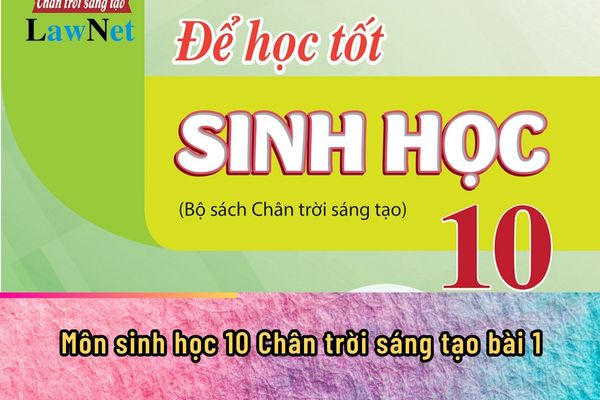What is the first lession of grade 10 Biology according to the "Chân trời sáng tạo" currciculum in Vietnam?
What is the first lession of grade 10 Biology according to the "Chân trời sáng tạo" currciculum in Vietnam?
Pursuant to Decision 2045/QD-BGDDT in 2024 about the framework for the academic year 2024 - 2025 plan for preschool, general education, and continuing education issued by the Ministry of Education and Training on August 1, 2024, schools in Vietnam mostly held the opening ceremony on September 5, 2024.
Therefore, preparing lessons for the new school year is necessary, we would like to the preparation for grade 10 Biology according to the "Chân trời sáng tạo" currciculum can refer to the following:
|
Introduction Lesson 1: General introduction to the Biology curriculum Part one: Cellular Biology Chapter 1: Chemical components of cells Part two: Microbiology and Virology Chapter 5: Microorganisms and applications |
*Note: This information is for reference only./.
Thus, the first lession of grade 10 Biology according to the "Chân trời sáng tạo" currciculum is "General introduction to the Biology curriculum".

What is the first lession of grade 10 Biology according to the "Chân trời sáng tạo" currciculum in Vietnam? (Image from the Internet)
What is general orientation for teaching grade 10 Biology according to the "Chân trời sáng tạo" currciculum in Vietnam?
According to Section 6 of the General Education Curriculum in Biology issued with Circular 32/2018/TT-BGDDT, the method of education for Biology 10 is implemented with the following common orientations:
- Promote the positive, proactive, creative nature of students; avoid one-way imposition and mechanical memorization; focus on fostering self-study and self-direction capabilities so that students can continue to explore, expand their knowledge, and develop necessary qualities and skills after upper secondary school graduation.
- Train the ability to apply biological knowledge to detect and solve practical problems; encourage and create opportunities for students to experience and create based on organizing various learning activities, discoveries, and applications.
- Flexibly and creatively apply educational methods suitable to the goals, content, students, and specific conditions. Depending on the requirements to be met, teachers can integrate multiple teaching methods into one topic. Traditional teaching methods (lectures, discussions,...) are used to promote students' active and proactive roles.
Enhance the use of modern teaching methods that emphasize students' learning autonomy (hands-on teaching, problem-solving-based learning, project-based learning, experience-based learning, discovery; differentiated teaching,... along with appropriate teaching techniques).
- Implement diverse and flexible learning methods; combine individual study, group study, classroom instruction, contract learning, flipped classrooms, online learning,... Enhance the application of information and communication technology in teaching biology.
Emphasize non-textbook resources and a system of teaching equipment; fully exploit the advantages of information and communication technology in teaching with multi-media knowledge repositories; increase the use of electronic resources (such as experimental films, virtual experiments, simulated experiments,...).
- Integrate through topics linked by multiple knowledge elements. For such topics, teachers should create situations that require students to apply knowledge and skills to solve problems in cognition, practice, and technology.
What are methods of evaluation of students after completing the grade 10 Biology according to the "Chân trời sáng tạo" currciculum in Vietnam?
According to Section 7 of the General Education Curriculum in Biology issued with Circular 32/2018/TT-BGDDT, the evaluation form after completing Biology 10 is specified as follows:
- Evaluation through written work: essay, objective test, dissertation, collection result report, research result report, investigation,...
- Evaluation through oral, presentation: answering oral questions, interviews, presenting research issues,...
- Evaluation through observation: observing the process of students carrying out practical experiments, group discussions, field studies, visits to scientific and production facilities, participating in research projects,… using observation sheets, checklists, learning portfolios,...

